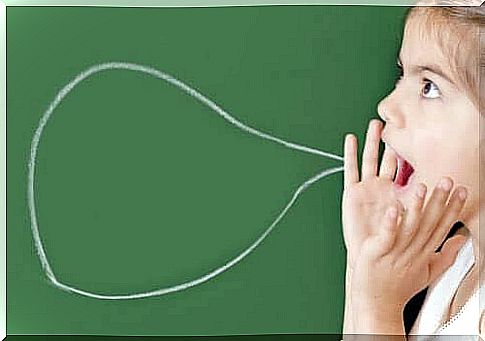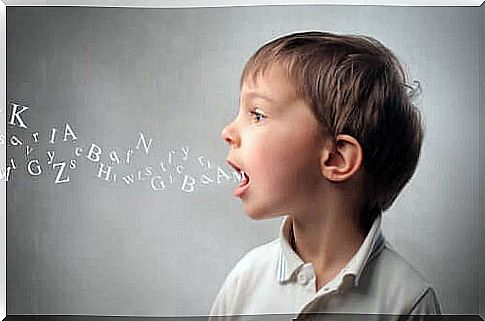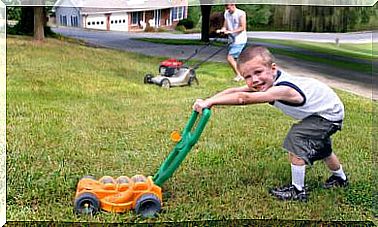Phonological Awareness In Children

Ever wonder why we speak a certain way? Or how do children start making sounds that gradually turn into words? That’s what phonological awareness is all about, which we develop as children without even realizing it.
How is phonological awareness in children?
Concept
Phonological awareness is the basis of any type of oral communication. Without sounds, we couldn’t verbalize words, let alone ideas.
Although we begin to develop this part of language when we are babies, it changes and matures throughout our lives. Some examples of this might be improving diction and learning new languages with their corresponding sounds.
Phonology in childhood
But let’s start at the beginning: how do you talk to a baby? Certainly you don’t use the same tone or the same complexity used when talking to another person. This phenomenon is called baby talk and, thanks to it, we learn the sounds of our language and the words that make it up in an intuitive way.

Imitation and repetition are essential at this stage. Pronunciation is a complex process that involves many parts of the throat and mouth, so it is not easy to master.
For example, when you say “garlic” to a baby, he will try to imitate you over and over until he finds the correct position to pronounce the lh . Also, when little ones learn a new sound, they repeat it over and over.
Effects of phonological awareness in children
Phonological awareness is defined as the ability to access the structure of oral language and to be aware of the phonological segments of words, necessary for learning written language. Therefore, learning to speak correctly during childhood is vitally important.
In schools, children start with oral exercises and then learn the correspondence between sounds and spelling, that is, letters.
Remember that mirror writing is normal in the early years. As children grow, the complexity also increases, as they learn to write words and phrases that they say themselves.
Little by little, they learn that not everything they say and write is right, but that there are rules that govern our language. It is at this point that, sometimes, parents and teachers realize that perhaps children have some degree of dyslexia, but currently this is not an impediment.
Promote phonological awareness in children
imitate and repeat
As we’ve already said, this is the method most used with babies and children, but who said it isn’t useful for teenagers and adults too? It’s true that, as we grow up, it takes us longer to adapt to the new phonological rules, but that’s not impossible.
We can improve our pronunciation in our own language or others at any age. All we need is a good example to follow. Try repeating words with similar sounds, such as tongue twisters, or imitating someone else’s accent and pronunciation.

To read
We can improve phonological skills through two ways of reading: reading aloud or listening to the reading and imitating it later. Also, if it is a multi-character reading, a joint reading can also be done.
Any kind of reading is beneficial. Promoting this habit in children will not only benefit them for writing or speaking, but also for expanding vocabulary, creativity and imagination. In addition, they also learn public speaking.
diction specialists
Sometimes children find it difficult to pronounce some specific sounds. In these cases, a speech therapist is the best option to correct and exercise pronunciation properly.
In addition, both a speech therapist and some teachers can advise you on some exercises to help your child at home too. Nobody is perfect, but we all have the capacity to improve.









